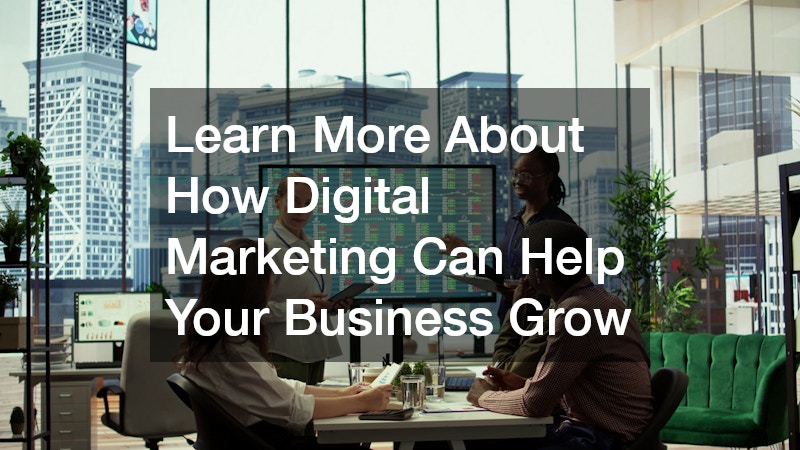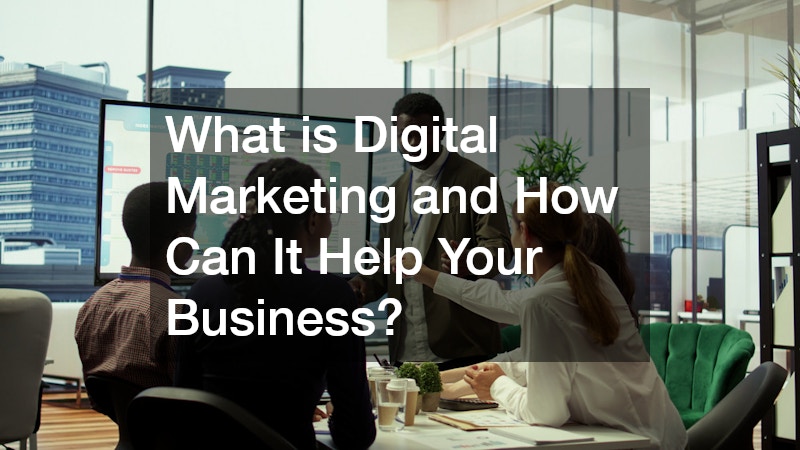In today’s digital age, businesses of all sizes are recognizing the importance of having a robust online presence. Digital marketing is a key strategy for achieving this presence and reaching potential customers more effectively. This article explores what digital marketing encompasses and how it can benefit your business.
What Are the Main Components of Digital Marketing?
Search Engine Optimization (SEO)
SEO, or Search Engine Optimization, is the practice of optimizing your website to achieve higher rankings in search engine results pages. By using strategic keywords and improving site structure, SEO increases visibility and drives organic traffic to your site.
An effective SEO strategy is crucial for the long-term success of digital marketing as it enhances credibility and trust.
SEO involves both on-page and off-page tactics, including improving the content quality and acquiring backlinks. On-page SEO focuses on optimizing individual web pages with relevant meta tags and keyword-rich content. Off-page SEO, on the other hand, leverages external factors such as social media and influencer partnerships to boost domain authority.
The return on investment (ROI) for SEO should not be underestimated; its impact is substantial and long-lasting. Businesses investing in SEO often see a significant increase in website traffic and customer engagement. This is partly because SEO provides essential insights into consumer behavior through analytics and search data.
Social Media Marketing
Social media marketing is the use of platforms like Facebook, LinkedIn, and Instagram to connect with audiences and promote products or services. It is a powerful tool for building brand awareness and fostering customer relationships. Strategic social media campaigns can increase brand loyalty and drive conversions.
Engagement on social media platforms allows businesses to receive direct feedback and insights from consumers. This interactive approach not only strengthens community engagement but also enables companies to tailor their strategies based on real-time feedback. Additionally, social media advertising offers highly targeted options to reach specific demographics effectively.
Social media has become an essential component of omnichannel marketing strategies. By aligning social media efforts with other digital marketing channels, businesses ensure a consistent brand message across all platforms. Moreover, user-generated content and influencer collaborations amplify reach and authenticity.
Content Marketing
Content marketing involves creating valuable and relevant content to attract and retain a defined audience. Quality content establishes authority and trust, leading to increased brand loyalty and customer retention. By providing solutions and informative material, content marketing drives customer engagement and decision-making.
Successful content marketing requires an understanding of your audience’s needs and preferences. This involves creating a variety of content formats, including blog posts, videos, infographics, and podcasts, to engage different segments. Well-executed content marketing strategies also incorporate search optimization to enhance discovery and visibility.
Regular analysis of content performance enables businesses to refine their approach and maximize impact. Metrics such as engagement rates, shares, and time spent on the page provide insights into the effectiveness of content strategies. Ultimately, content marketing strengthens brand positioning and complements other digital marketing efforts.
How Does Digital Marketing Benefit Businesses?
Increased Reach and Visibility
Digital marketing allows businesses to extend their reach beyond geographical limitations, connecting with a global audience. Online advertising and social media platforms provide various opportunities for businesses to increase their visibility. The ability to target specific audiences based on behavior and interests enhances the efficiency of marketing efforts.
Visibility is key to brand recognition, and digital marketing makes it possible to maintain a continuous presence in the online space. Techniques such as pay-per-click advertising and sponsored content ensure that businesses remain top-of-mind for potential customers. Higher visibility and a robust online presence lead to increased website traffic and conversions.
Moreover, digital marketing empowers small businesses to compete with larger companies by leveling the playing field. By strategically using tools like SEO and social media, smaller enterprises can improve their market position. This democratizing effect of digital marketing underscores its importance for businesses of all sizes.
Cost-Effective Marketing
Compared to traditional marketing methods, digital marketing often proves more cost-effective while delivering measurable results. Many digital marketing tools and platforms offer affordable options that provide significant returns on investment. This accessibility allows businesses to allocate resources more efficiently and invest in growth strategies.
With digital marketing, businesses can track spending and performance in real-time, optimizing strategies for maximum impact. This level of oversight enables marketers to adjust campaigns promptly based on data-driven insights. By reducing wastage and improving targeting, digital marketing enhances efficiency and yields better value for every dollar spent.
Automation tools and analytics further reduce marketing costs by streamlining processes and minimizing manual effort. Campaign automation fosters engagement by sending timely and personalized messages to customers. The financial flexibility afforded by digital marketing makes it an attractive choice for businesses seeking sustainable growth.
Measurable Results
One of the strengths of digital marketing is its capacity to provide measurable and actionable data through analytics platforms. Businesses can gather insights into consumer behavior, preferences, and interactions, facilitating informed decision-making. The ability to measure campaign performance accurately allows marketers to compensate for any shortcomings and capitalize on successful strategies.
Key performance indicators (KPIs) such as click-through rates, conversion rates, and customer acquisition costs are crucial metrics in digital marketing. These metrics enable businesses to gauge the effectiveness of their efforts and allocate resources accordingly. The real-time feedback loop allows for agility in marketing strategies, fostering continuous improvement and adaptation.
Through measurable results, businesses can track the customer journey and optimize touchpoints for enhanced user experiences. This process builds deeper connections with consumers and fosters loyalty. Ultimately, data-driven insights empower businesses to refine their marketing approaches, driving success in a competitive digital landscape.
What Are the Challenges of Digital Marketing?
Keeping Up with Changing Trends
The digital landscape is dynamic, with trends and technologies evolving rapidly, posing challenges for businesses. Staying updated requires constant monitoring of industry developments and adapting strategies accordingly. Ignoring emerging trends can result in missed opportunities and decreased competitiveness.
Continuous learning and professional development are necessary for marketers to stay ahead of the curve. Workshops, courses, and industry events provide valuable insights into the latest tools and methodologies. Actively engaging with thought leaders and industry experts supports innovation and inspiration in digital marketing strategies.
Digital marketing also calls for agile methodologies that accommodate rapid changes. Businesses must be prepared to pivot strategies swiftly to respond to market shifts and consumer expectations. A proactive approach to trend adaptation can set companies apart, ensuring long-term viability in the digital space.
Achieving High Competition and Saturation
The digital marketing arena is characterized by high competition and saturation, necessitating innovative strategies to stand out. Differentiation through unique value propositions and compelling brand narratives is key to capturing audience attention. Consistent effort in maintaining quality and creativity sets businesses apart from competitors.
Innovative digital marketing campaigns leverage the latest technologies, such as artificial intelligence and machine learning, to gain a competitive edge. Personalization, interactivity, and automation elevate customer experiences and engagement. These tactics align with evolving consumer preferences, positioning businesses as industry leaders.
The commitment to continuous improvement and adapting to consumer feedback bolsters competitive positioning. By monitoring competition and identifying market gaps, businesses can seize opportunities for differentiation. Building a loyal customer base through exceptional service and community involvement further strengthens brand success.
Digital marketing is an essential part of modern business strategy, offering numerous tools and tactics to enhance brand visibility and engagement. By understanding its components and benefits, businesses can leverage digital marketing to achieve their goals. However, staying informed about the challenges and evolving trends is crucial for success in this dynamic field.




